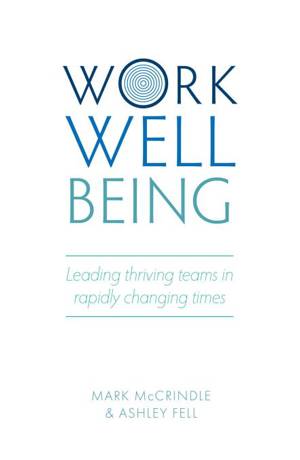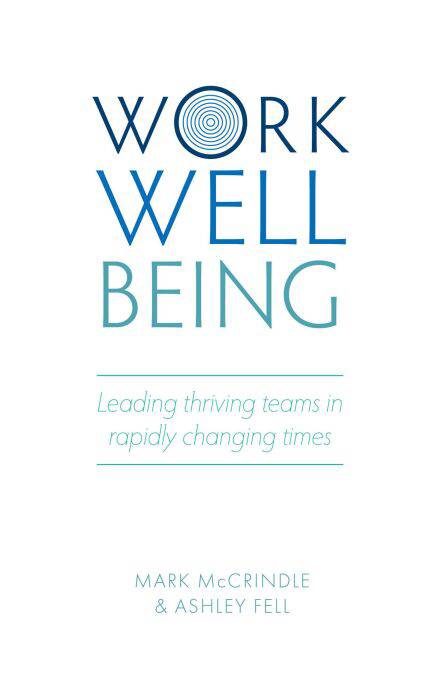
Je cadeautjes zeker op tijd in huis hebben voor de feestdagen? Kom langs in onze winkels en vind het perfecte geschenk!
- Afhalen na 1 uur in een winkel met voorraad
- Gratis thuislevering in België vanaf € 30
- Ruim aanbod met 7 miljoen producten
Je cadeautjes zeker op tijd in huis hebben voor de feestdagen? Kom langs in onze winkels en vind het perfecte geschenk!
- Afhalen na 1 uur in een winkel met voorraad
- Gratis thuislevering in België vanaf € 30
- Ruim aanbod met 7 miljoen producten
Zoeken
WORK WELLBEING E-BOOK
Leading thriving teams in rapidly changing times
Mark McCrindle
E-book | Engels
€ 15,65
+ 15 punten
Omschrijving
Over the last decade our world has increased its focus on individual well-being. There is a huge amount of information available and education offered on how to enhance personal well-being by reducing stress and being more physically active, but when it comes to our workplaces do we really know what well-being means? Because we now live longer and work for extended hours and well into our twilight years, workplace well-being becomes a key element to employee attraction, retention and satisfaction. It's not just important that workplaces prioritise well-being; it's vital for their success. With whom does the responsibility lie to ensure this is happening? Using data-driven insights, social researchers Ashley Fell and Mark McCrindle have surveyed thousands of employees on this topic to better equip managers, leaders and employees with an thorough understanding of what workplace well-being is, why it is important and how to achieve it.
Specificaties
Betrokkenen
- Auteur(s):
- Uitgeverij:
Inhoud
- Aantal bladzijden:
- 224
- Taal:
- Engels
Eigenschappen
- Productcode (EAN):
- 9781925924930
- Verschijningsdatum:
- 18/08/2020
- Uitvoering:
- E-book
- Beveiligd met:
- Adobe DRM
- Formaat:
- ePub

Alleen bij Standaard Boekhandel
+ 15 punten op je klantenkaart van Standaard Boekhandel
Beoordelingen
We publiceren alleen reviews die voldoen aan de voorwaarden voor reviews. Bekijk onze voorwaarden voor reviews.









